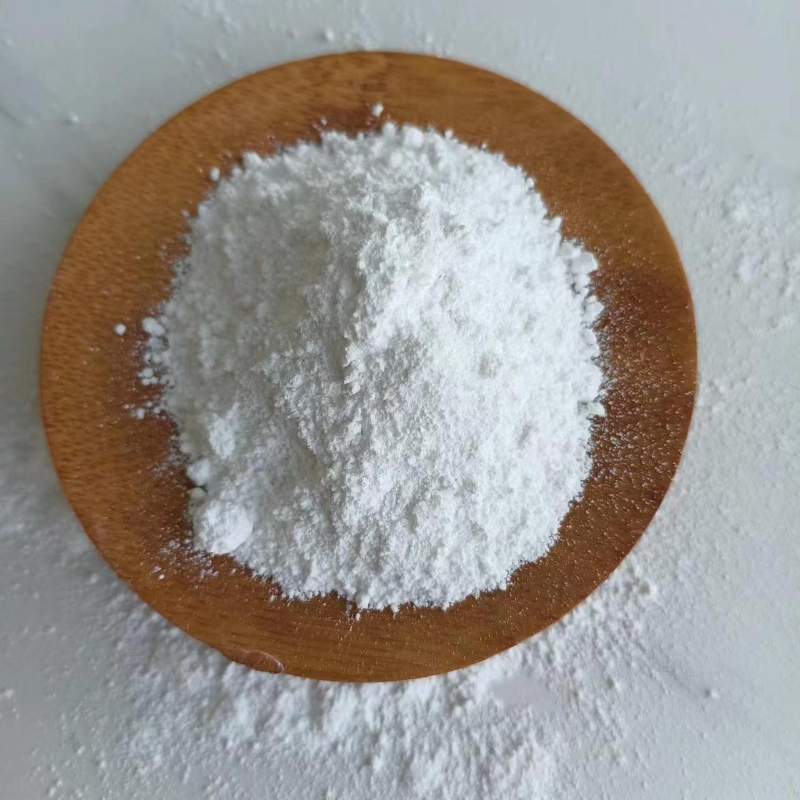-
Categories
-
Pharmaceutical Intermediates
-
Active Pharmaceutical Ingredients
-
Food Additives
- Industrial Coatings
- Agrochemicals
- Dyes and Pigments
- Surfactant
- Flavors and Fragrances
- Chemical Reagents
- Catalyst and Auxiliary
- Natural Products
- Inorganic Chemistry
-
Organic Chemistry
-
Biochemical Engineering
- Analytical Chemistry
- Cosmetic Ingredient
-
Pharmaceutical Intermediates
Promotion
ECHEMI Mall
Wholesale
Weekly Price
Exhibition
News
-
Trade Service
Only for medical professionals to read and reference Avoid risk factors + adjust life>
.
According to the Bristol stool characteristics of patients with abnormal defecation (Figure 1), IBS can be divided into: diarrhea-type IBS (IBS-D), constipation-type IBS (IBS-C), mixed IBS (IBS-M) and indeterminate IBS (IBM-U) 4 subtypes
.
Diarrhea-type IBS (IBS-D) refers to more than 25% of the days with stool traits of type 6 or 7 on the Bristol stool trait scale, and less than 25% of days with defecation as type 1 or 2
.
Figure 1 IBS diagnostic criteria + Bristol stool shape scale So, how to treat IBS-D? Basic principles of IBS-D treatment The goal of IBS treatment is to improve symptoms and improve quality of life, and individualized comprehensive treatment strategies are required
.
The basic means of treatment include avoiding risk factors, adjusting life>
.
▌Adjust your life>
.
The types of restricted foods for reference are shown in Table 1
.
For patients with clinically suspected or confirmed wheat gluten allergy or celiac disease, it is necessary to recommend a gluten-free diet, such as potatoes, corn, vegetables, meat, beans, nuts, milk eggs, seafood, rice, etc.
, or purchase a gluten-free diet food, and for patients who have identified a food allergen, they should avoid ingesting food containing that allergen
.
Table 1 Restricted food for IBS-D patients [3] Note: For reference only, choose food according to the patient's condition
.
②Improve life>
.
▌Psychotherapy includes short-term treatments such as cognitive behavioral therapy, emotional awareness training, and hypnotherapy, with obvious benefits
.
Psychotherapy should be considered if symptoms do not improve after 12 months of drug therapy
.
▌Drug therapy ① Antispasmodics improve abdominal pain: pinaverium bromide, octilonium bromide, alverine, trimebutine
.
② Antidiarrheal agents improve diarrhea: double octahedral montmorillonite, loperamide
.
③ Probiotics: such as Bifidobacterium triple viable capsules, Bacillus licheniformis viable capsules
.
Probiotics may be an effective treatment for overall IBS symptoms and abdominal pain, but no specific strain or strain is recommended
.
It is recommended to try probiotic therapy for up to 12 weeks and discontinue if symptoms do not improve [4]
.
④ Antidepressants: paroxetine hydrochloride tablets, amitriptyline hydrochloride tablets
.
As an entero-brain neuromodulator, it is suitable for patients with obvious mental and psychological disorders and ineffective treatment with conventional drugs (4 to 8 weeks)
.
It is an effective second-line drug for the treatment of overall symptoms and abdominal pain in IBS and can be used in primary or secondary care, but the rationale for its use needs to be carefully explained and patients should be informed of its side effects [4]
.
Analysis of 8 classic prescriptions ■ Prescription 1 pinaverium bromide tablet 50mg orally with meals 3 times a day Indications: IBS patients with abdominal pain symptoms
.
Medication analysis: IBS patients have intestinal smooth muscle spasm, which is associated with symptoms such as pain
.
Intestinal smooth muscle spasmolytics such as pinaverium bromide can significantly improve abdominal pain, diarrhea and overall symptoms in IBS patients, and the efficacy of drug treatment for 4 weeks is better than that for 2 weeks
.
Adverse reactions: occasional abdominal discomfort
.
Children and pregnant women are prohibited
.
■ Prescription 2 Trimebutine Maleate Tablets 0.
1g orally 3 times a day before meals Indications: Mixed and indeterminate IBS patients
.
Medication analysis: Trimebutine directly acts on the multi-ion channels of the cell membrane, has a two-way regulation on the smooth muscle movement of the digestive tract, and has a significant effect on the treatment of mixed and undetermined IBS patients
.
Matters needing attention: Patients who have experienced liver function damage and jaundice need to be fully observed.
If any abnormality is found, the drug should be discontinued immediately and liver protection treatment should be carried out
.
Pregnant women, lactating women and children should use with caution
.
■ Prescription 3 double octahedral montmorillonite 3g orally 3 times a day Indications: diarrhea-type IBS patients with mild diarrhea
.
Medication analysis: Dioctahedral montmorillonite can absorb gas and toxins in the digestive tract and promote the absorption function of intestinal mucosal cells.
It is a commonly used antidiarrheal agent in clinical practice
.
Dioctahedral montmorillonite can reduce the frequency of watery diarrhea and mucous stool in patients with diarrhea-type IBS, reduce the frequency of incomplete defecation, and has significant curative effect on abdominal pain and overall symptoms
.
■ Prescription 4 loperamide hydrochloride capsules is 4 mg for the first time, and then 2 mg is taken orally for each diarrhea.
Indications: patients with diarrhea-type IBS with severe diarrhea
.
Medication analysis: loperamide is a synthetic peripheral opioid peptide receptor agonist, acting on the opioid receptors in the intestinal wall, which can inhibit intestinal smooth muscle contraction, reduce intestinal motility, prolong the retention time of intestinal contents, and enhance the intestinal Absorption of water and electrolytes
.
Loperamide can significantly reduce defecation frequency, increase stool hardness, and relieve symptoms of defecation incontinence in patients with diarrhea-predominant IBS
.
Note: Adverse reactions include mild, mainly skin rash, itching, dry mouth, abdominal distension, nausea, loss of appetite
.
Infants under the age of 2 are prohibited, and children under the age of 5 should not be treated with loperamide hydrochloride capsules
.
Breastfeeding women should not use this product
.
■ Prescription 5 bifidobacteria triple viable capsules 2 to 4 capsules each time, twice a day, doubled for severe cases, take with warm water half an hour after meals Indications: IBS accompanied by intestinal microecological imbalance
.
Drug analysis: Many studies have shown that there is an imbalance of intestinal microecology in patients with IBS, which may be related to the occurrence and development of IBS
.
Probiotics relieve bloating, abdominal pain, diarrhea, and general symptoms in people with IBS
.
Bacillus licheniformis live bacteria capsule is a live bacteria preparation, which can adjust the intestinal microecology and antagonize pathogenic bacteria
.
Note: 1.
Suitable for refrigerated storage
.
2.
It is advisable to take it with cold or warm water
.
3.
The combination of antacids and antibacterial drugs with this product can weaken its efficacy, and should be taken separately at the wrong time
.
4.
Bismuth, tannic acid, activated carbon, tincture, etc.
can inhibit, adsorb or kill live bacteria, and should be taken separately at the wrong time
.
■ Prescription 6 Bacillus licheniformis capsules 0.
5g, 3 times a day, the first dose is doubled orally.
Indications: IBS accompanied by intestinal microecological imbalance
.
Drug analysis: Many studies have shown that there is an imbalance of intestinal microecology in patients with IBS, which may be related to the occurrence and development of IBS
.
Probiotics relieve bloating, abdominal pain, diarrhea, and general symptoms in people with IBS
.
Bacillus licheniformis live bacteria capsule is a live bacteria preparation, which can adjust the intestinal microecology and antagonize pathogenic bacteria
.
Precautions: Constipation may be seen in overdose
.
The water temperature should not be higher than 40 ℃ when dissolving
.
Antibacterial drugs can reduce their efficacy when used in combination with this product, so they should not be taken together.
If necessary, they can be taken at an interval of 3 hours
.
Bismuth, tannic acid, medicinal charcoal, tincture, etc.
can inhibit and adsorb viable bacteria, and cannot be used together
.
■ Prescription 7 Paroxetine Hydrochloride Tablets 20mg taken once a day with breakfast Indications: IBS patients with anxiety, depression or refractory irritable bowel syndrome
.
Medication analysis: The occurrence of IBS may be related to increased visceral sensitivity and central pain sensation
.
Psychological symptoms are common in patients with refractory irritable bowel syndrome, and the severity of depression is positively correlated with the severity of IBS symptoms
.
Paroxetine hydrochloride is an antidepressant, a potent and highly selective 5-HT reuptake inhibitor
.
The treatment of IBS can not only improve the mental symptoms of patients, but also has a significant effect on improving the symptoms of digestive tract
.
Compared with tricyclic antidepressants, it has less toxicity and adverse reactions
.
Note: common mild dry mouth, nausea, anorexia, constipation, headache, tremor, fatigue, insomnia and sexual dysfunction, occasionally neuroedema, urticaria, orthostatic hypotension, rare extrapyramidal reactions
.
Pregnant women and lactating women should not use
.
Monoamine oxidase inhibitors should not be used for two weeks before or after taking this medicine
.
Combination with cisapride, thioridazine, pimozide, and terfenadine can cause cardiotoxicity, lead to QT interval prolongation, cardiac arrest, etc.
, and should be prohibited
.
Use with caution in patients with a history of epilepsy or mania, angle-closure glaucoma, bleeding tendencies, suicidal tendencies, or severe depressive states
.
■ Prescription 8 Amitriptyline hydrochloride tablets should be administered from a low dose of 10 mg once a day, slowly adjusted to a maximum dose of 30-50 mg, orally once a day [4] Indications: IBS with anxiety, depression or refractory treatment patients with irritable bowel syndrome
.
Medication analysis: This product is a tricyclic antidepressant, its role is to inhibit the reuptake of serotonin and norepinephrine, and the inhibition of serotonin reuptake is stronger
.
Sedative and anticholinergic effects are also strong
.
Precautions: Anticholinergic reactions may occur at the initial stage of treatment, such as sweating, dry mouth, blurred vision, difficulty urinating, and constipation
.
Adverse reactions in the central nervous system may include drowsiness, tremor, and dizziness
.
Orthostatic hypotension can occur
.
Occasionally seizures, bone marrow suppression and toxic liver damage
.
Severe heart disease, recent history of myocardial infarction, epilepsy, glaucoma, urinary retention, hyperthyroidism, liver function damage, allergy to tricyclic drugs is prohibited
.
Use with caution in patients with severe liver and renal insufficiency, enlarged prostate, elderly or cardiovascular disease
.
ECG should be monitored during use
.
This product should not be used in combination with monoamine oxidase inhibitors, and should be used 14 days after the monoamine oxidase inhibitor is stopped
.
Patients who have turned to manic tendencies should immediately discontinue the drug
.
It is not advisable to drive vehicles, operate machinery or work at heights during the medication
.
This product has many drug interactions, please consult your pharmacist or doctor if you need to combine it with other drugs
.
References: [1] Gastrointestinal Functional Diseases Collaborative Group of Gastroenterology Branch of Chinese Medical Association, Gastrointestinal Dynamics Group of Gastroenterology Branch of Chinese Medical Association.
Expert consensus opinion on irritable bowel syndrome in China in 2020 [J].
Zhonghua Digestive Journal, 2020, 40(12): 803-818.
[2] Song Yiran, Liang Xiaonan, Li Chenyang, et al.
Interpretation of "Expert Consensus Opinions on Irritable Bowel Syndrome in China in 2020" [J].
Clinical Metadata, 2021, 36 (7): 628-631.
[3] Chinese Medical Association, Journal of Chinese Medical Association, Gastroenterology Branch of Chinese Medical Association, et al.
Guidelines for primary diagnosis and treatment of chronic diarrhea (2019) [J].
Chinese Journal of General Practitioners, 2020,19(11):973-982.
[4]Vasant DH,Paine PA,Black CJ,et al.
British Society of Gastroenterology guidelines on the management of irritable bowel syndrome[J].
Gut.
2021 Apr 26;gutjnl- 2021-324598.
Expert Profile Prof.
Xiaocang Cao Chief Physician, Professor, Department of Gastroenterology, General Hospital of Tianjin Medical University, Master Supervisor of Tianjin Medical University, Ph.
Postdoctoral Visiting Scholar at the Faculty of Medicine, University of Illinois
.
Member of the Digestive Endoscopy Committee of the Inflammatory Bowel Disease Group of the Gastroenterology Branch of the Chinese Medical Association, Deputy Director of the Youth Committee of the Behavioral Medicine Branch of the Chinese Medical Association, member of the Clinical Epidemiology Collaborative Group of the Gastroenterology Branch of the Chinese Medical Association, and Digestive Disease of the Chinese Medical Equipment Association Member of the Inflammatory Bowel Disease Group of the Academic Society Committee, member of the Inflammatory Bowel Disease Professional Committee of the Chinese Medical Doctor Association Anorectal Physician Branch, member of the Anorectal Intractable Disease Professional Committee, member of the Inflammatory Bowel Disease Expert Committee of the Digestive Endoscopy Professional Committee of the Chinese Society of Integrative Medicine, Beijing Member of the Inflammatory Bowel Disease Expert Committee of the Medical Award Foundation, member of the Standing Committee of the Inflammatory Bowel Disease Alliance of Wu Jieping Medical Foundation, member of the Standing Committee of the Intestinal Microecology Professional Committee, member of the Standing Committee of the Stem Cell Engineering Technology Branch of the Chinese Society of Biomedical Engineering, and Inflammation of the Gastroenterology Branch of the Tianjin Medical Association Deputy Director of the Sexual Bowel Disease Group Research direction: biological therapy and cell therapy for autoimmune diseases of inflammatory bowel disease and digestive tract immune disease, especially dedicated to the clinical application of mesenchymal stem cell transplantation
.
His research results have won awards from international conferences such as the American Gastroenterology Annual Meeting and the European Union Gastroenterology Annual Meeting, and he has published dozens of papers in SCI journals and Chinese series journals
.
Xie Dong is a clinical pharmacist in the General Hospital of Tianjin Medical University, a clinical pharmacist who specializes in gastroenterology in the National Clinical Pharmacist Training Base, and an MTM pharmacist certified by the American Pharmacists Association (APhA)
.
Liu Xiaoyu, Clinical Pharmacist, Panjin Liaoyou Gem Flower Hospital







